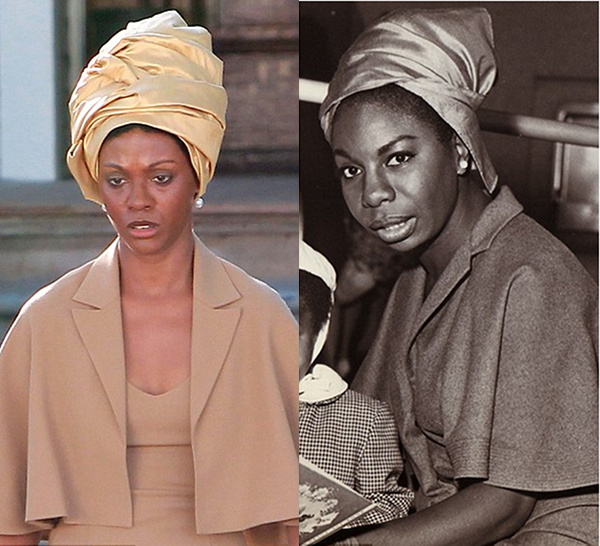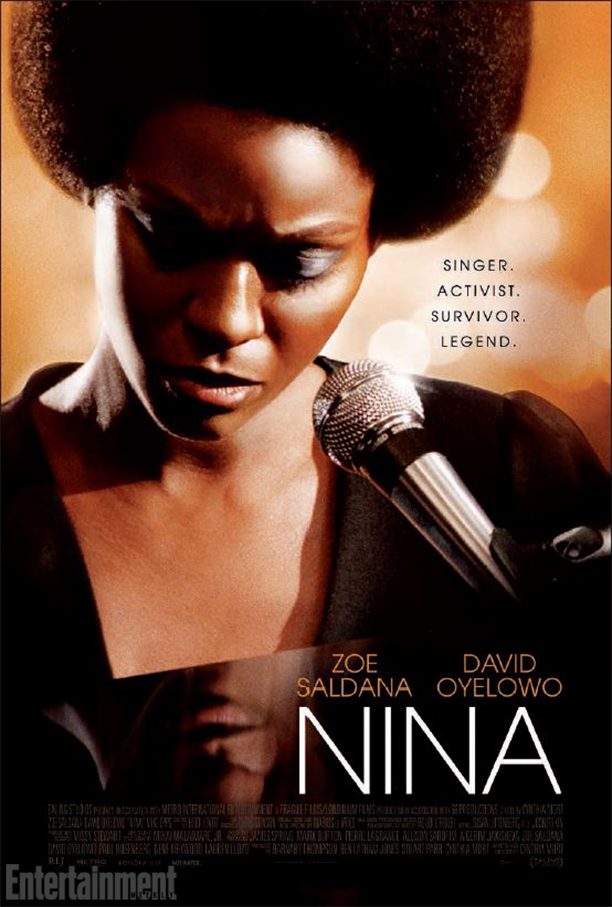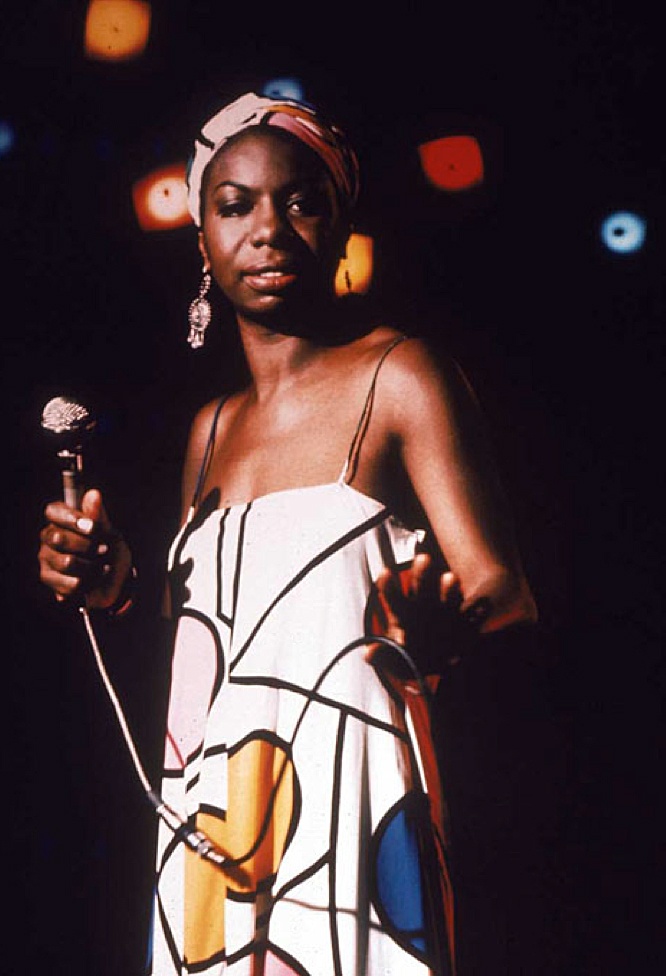
Despite the various conversations that have circulated around Hollywood on the necessity and importance of diversity for media (especially over the past few weeks while gearing up for the Oscars), it seems one thing was slightly overlooked in the conversation: Promoting diversity WITHIN various minority groups. Well, that conversation resurfaced yesterday when the new Nina Simone biopic ad came out, showing a very darkened-up Zoe Saldana in the role.
While many people (self included) were ecstatic about the theater debut of the film (set for April 22), others were discontent by the casting of Zoe Saldana as Nina Simone, for various reasons.
One of the biggest reasons for the discontent, however, became more apparent from the ad, where it was clearly evident that Saldana’s skin had been darkened with makeup to better reflect the melanin of Nina Simone. Although some may say that there’s nothing wrong with that, the first thing that jumped in my mind was, So…they couldn’t have found a darker-skinned actress to play the role?
Why did the casting directors, producers and screen writers not consider nor think a woman of Simone’s actual skin color could play this role, but instead re-institute a similar idea of ‘blackface’ to the screen, this time using an actual woman of color (and in case some will argue this is not an example of black face, it’s still using makeup to portray a skin tone that is not one’s own).
Twitter user @Dart_Adams asked, “Why did they DARKEN Zoe Saldana rather than cast a darker actress since it was such a crucial part of Nina Simone’s story?”
 Was Saldana the only woman of color that could be found to tackle Nina Simone’s story? Was she the only woman of color in Hollywood willing to take on the role of one of America’s greatest musician activists of the 20th century?
Was Saldana the only woman of color that could be found to tackle Nina Simone’s story? Was she the only woman of color in Hollywood willing to take on the role of one of America’s greatest musician activists of the 20th century?
@AntheaButler joked, “That Zoe Saldana pic as Nina Simone looks like the blackface of a bad Halloween or frat party.” For her part, Saldana has yet to respond to the backlash over the film’s new poster.
Now, don’t misunderstand that it is wonderful that Zoe Saldana has been given this opportunity to bring something to the role of Ms. Simone, and that this much better than the alternative (a non-black actress playing Simone). However… were there no other options that could have presented opportunities for more diversity of black women in Hollywood?

“We understand that there are these beauty issues,” Lanita Jacobs, an anthropology teacher at the University of Southern California, remarked on Zoe as Nina, “and sometimes what sanctions people’s right to speak on these kind of issues is whether they have had experiences born of what it means to have kinky hair, or to have wide noses or darker skin. Nina’s music taps into a certain kind of awareness born of the way she looks.”
Jacobs says casting the fair-skinned Saldana, then darkening her with makeup and giving her a prosthetic nose and an Afro wig, is particularly offensive to women who have had to struggle with acceptance because of their own dark complexions.
People online have even made suggestions that Viola Davis, Uzo Aduba, or Lupita Nyong’o would have been more admirable selections.
Davis has spoken out before on discrimination she has faced in Hollywood, not jut for her age or gender or race, but specifically, by her being a darker woman of color. “When you do see a woman of color onscreen, the paper-bag test is still very much alive and kicking. That’s the whole racial aspect of colorism: If you are darker than a paper bag, then you are not sexy, you are not a woman, you shouldn’t be in the realm of anything that men should desire.” (TheGrio)
What do you think of Zoe Saldana being cast in a role of a woman who faced constant prejudice due to her dark skin? Is this morally a huge flag about the lack of diversity within our black acting community, or should we just be happy about the opportunity and keep moving forward?


